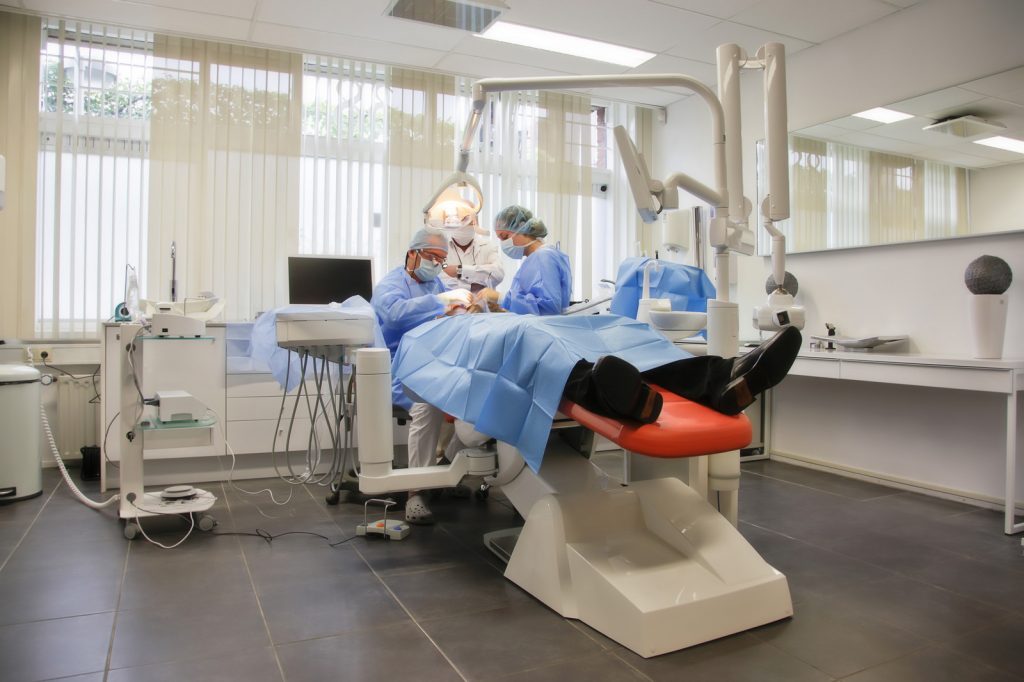As with nearly any dental procedure, the emergence of complications from wisdom teeth removal in Port Moody is possible — albeit rare and preventable. There are three primary types of complications that can arise.
Dry socket
When wisdom teeth are extracted, they leave behind an extraction site. Before completing the wisdom teeth extraction procedure, your dentist in Port Moody will ensure that a stable blood clot has formed in each extraction site. If that clot is dislodged, you can develop a condition called dry socket. If the clot does become dislodged, the extraction site is exposed to all of the conditions inside your mouth and may experience severe pain.
If you experience severe pain or a foul smell or taste in your mouth, contact your dentist immediately to respond to any complications arising from wisdom teeth removal near you. Your dentist will provide you with detailed instructions about how to avoid dislodging your clot that you should follow carefully. They’ll include basic precautions such as avoiding anything that will produce suction in your mouth while healing. To do so, you must avoid smoking, drinking with a straw and spitting, among other precautions.
Injury to nerves
Wisdom teeth can be very difficult to reach and are typically nested very close to nerves inside your jaw. During wisdom teeth removal near you, dentists may come into contact with and bruise or damage a nerve. If that happens, you may notice numbness affecting your gums, tongue, chin and lips. That numbness (also called paresthesia) is typically only temporary and usually dissipates within a few weeks (though in some cases it can be permanent). Paresthesia caused during wisdom tooth removal surgery may interfere with daily tasks such as eating and drinking but does not cause any weakness in your mouth itself.
Before you undergo your wisdom teeth removal procedure, a dentist near you will discuss all possible risks with you — risks of undergoing the extraction and risks of leaving the wisdom teeth in place.
Infection
The most common risk associated with any dental surgery procedure is the risk of infection. The entire team of dental professionals involved in your treatment are trained in and committed to infection control procedures and will do everything possible to minimize the risk of infection. They’ll also provide you with detailed instructions about how to avoid developing any infection at home during your recovery. If, at any time, you experience increased symptoms during treatment or symptoms that you were not warned about in advance, be sure to let your dentist know. Symptoms such as increased or lingering pain, swelling and bleeding may indicate the presence of infection especially if accompanied by any fever or discharge from the extraction sites.
If your dentist has recommended that you undergo wisdom tooth extraction, it is very likely because of the risk of complications from leaving the wisdom teeth in place. Wisdom teeth that emerge into an already full jaw can interfere with your existing teeth by pushing them out of alignment and even becoming impacted (stuck) in whole or in part under your already present teeth. Since wisdom teeth are entirely unnecessary for your full dental function, removing them does not impose any long-term sacrifice or loss.
Wisdom tooth extraction is a significant dental procedure performed by experts with vast experience in performing the same techniques on many patients. While no two procedures are precisely the same, all include the same steps and none are begun until detailed planning and preparation has been completed. If you have any questions, don’t hesitate to contact a dentist near you to get all the answers that you need.

